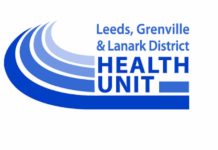by Dana Douglas, RD MscFN, Leeds, Grenville & Lanark District Health Unit
What is a Registered Dietitian?
Registered dietitians are regulated health professionals who guide individuals, communities, and populations to embrace food, understand it, and enjoy it in order to promote health and prevent chronic disease. Dietitians are committed to evidence-based practice, so when they make a recommendation, you can be assured it is credible and based on the best available scientific evidence. They translate the science of nutrition into terms that everyone can understand.
In Ontario, anyone can call themselves a “nutritionist”. However, the title “dietitian” is protected by law, just like the titles nurse, pharmacist, or physician. Only members registered with the College of Dietitians of Ontario can call themselves a dietitian and have the initials RD after their name. Registered dietitians are accountable to the College and public for safe, competent, and ethical nutrition services. To become a registered dietitian, one must complete an accredited 4-year degree in nutrition and a dietetic internship through an accredited program. Following this, it is necessary to pass the national dietetic exam and commit to an annual practice review in order to maintain competence.
Dietitians at the Health Unit work with the Healthy Growth and Development team, which supports children aged 0 to 6 years and their families, and pregnant women. The registered dietitian on this team attends groups in the community through the EarlyON Child & Family Centres, Children’s Resources on Wheels (CROW), and Connections, which hosts the Canadian Prenatal Nutrition Program: Good Food for a Healthy Baby. The dietitian will attend home visits through the Healthy Babies Healthy Children program, and also helps support public health nurses and family home visitors working with clients. It is also the responsibility of the dietitian to create resources, provide ongoing education to community partners, like childcare providers, and implement programs like NutriSTEP®, a nutrition screening tool for toddlers and preschoolers.
Registered dietitians use the most current and credible scientific evidence and recommendations to help support children and families. They provide information and support to caregivers around introducing solids to babies, which could include recommendations on textures, amounts, hunger/fullness cue, and allergies. They help families develop healthy mealtimes by respecting the division of responsibility in feeding, minimizing picky eating, and creating enjoyable eating environments. Another way in which they support clients is to empower pregnant women to eat healthy and develop food skills.
For more information, visit www.healthunit.org, connect with us on Facebook and Twitter, or call 1-800-660-5853.







